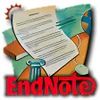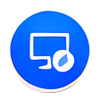Simplify the process of creating a bibliography with this vast program designed for professionals
Simplify the process of creating a bibliography with this vast program designed for professionals
Vote: (60 votes)
Program license: Trial version
Developer: Ritme
Version: x4-0.1
Works under: Mac
Vote:
Program license
(60 votes)
Trial version
Developer
Version
Ritme
x4-0.1
Works under:
Mac
Pros
- Allows writers to cut down hours wasted on cross referencing citations
- Integrated with many different word document formats, with limited support for image text parsing
- Citations can be generated as the writer works
Cons
- No support for Google Scholar citations and papers
Endnote is a Mac specific application that allows users to write papers, compile references, format specific bibliographies, and get their work up to par with editorial standards.
Overall, the program functions by parsing your text in order to search through a broad database of different sources. Endnote intelligently populates your bibliography with information based on these results. Depending on your needs, Endnote also offers a "Cite while you write" option that immediately populates your citation notes as you make references.
Through this system, Endnote cuts down significantly on the time needed for you to compile your own bibliography and citations. All writers know that citations, cross referencing, and digging through old texts is one of the biggest time sucks of writing papers.
In a new update, users are now able to import papers saved on different formats, such as PDF files. Endnote is able to scan letters of images of text as well, allowing for the algorithm to parse even more intelligently into your citations.
Currently, Endnote supports the LIB, ENL, TXT, RTF, HTM, XML, DOT, and DOC formats with limited support for IMG and JPG files. Users should be careful when parsing for citations from images though since the application isn't necessarily fool proof.
Once a citation is generated, users have the option to edit any field just in case it populated with incorrect information. If multiple citations are generated concerning one piece of text, users can pick and choose which citation is correct. At the end of the day, the user has full control over how, when, and where citations are populated.
The one major drawback some users have mentioned is that the app features no support for Google Scholar, which is one of the most massive scholarly article databases in the world. For some, this one drawback may be a deal breaker.
Pros
- Allows writers to cut down hours wasted on cross referencing citations
- Integrated with many different word document formats, with limited support for image text parsing
- Citations can be generated as the writer works
Cons
- No support for Google Scholar citations and papers




